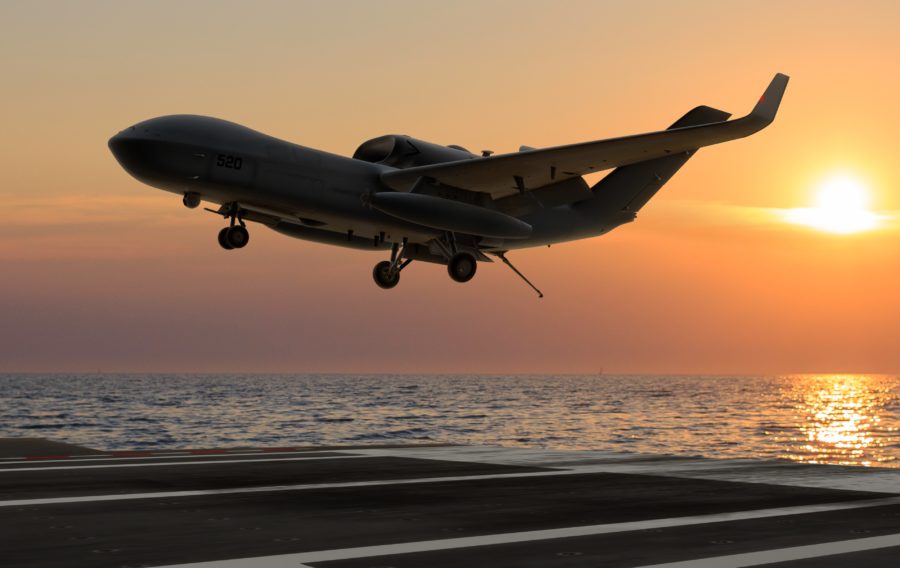
General Atomics Aeronautical Systems has celebrated a successful performance testing of the arresting hook ‘Hold Down Damper’ for its MQ-25 Stingray prototype.
The prototype is one of several pitched as part of a US Navy competition calling for an unmanned aircraft capable of aerial refuelling. In addition to General Atomics, Boeing and Lockheed Martin have also set about developing their own interpretations of the MQ-25 Stingray concept.
For this most recent milestone, General Atomics Aeronautical Systems collaborated with GKN Aerospace’s Fokker Technologies business, based in the Netherlands. It is thought that Fokker will provide the arresting hook for the General Atomics bid.
The test itself simulated dynamic conditions to better identify the performance characteristics of the Hold Down Damper – specifically damping, spring rate and pressure control functionality.
“The tests successfully validated the dynamic simulation model for our Hold Down Damper for MQ-25,” said David Alexander, President of Aircraft Systems at General Atomics Aeronautical Systems. “The validation of this model gives us confidence ahead of production and eventual deployment. This is part of our ongoing effort to reduce risk and accelerate capability for the navy.”
The performance testing is the latest in a succession of MQ-25 milestones for General Atomics. In recent weeks fuel capacity has been maximised, mission payloads tested and engines thoroughly put through their paces.
If you would like to join our community and read more articles like this please click here.
Fokker Technologies General Atomics GKN Aerospace MQ-25 Stingray US Navy







